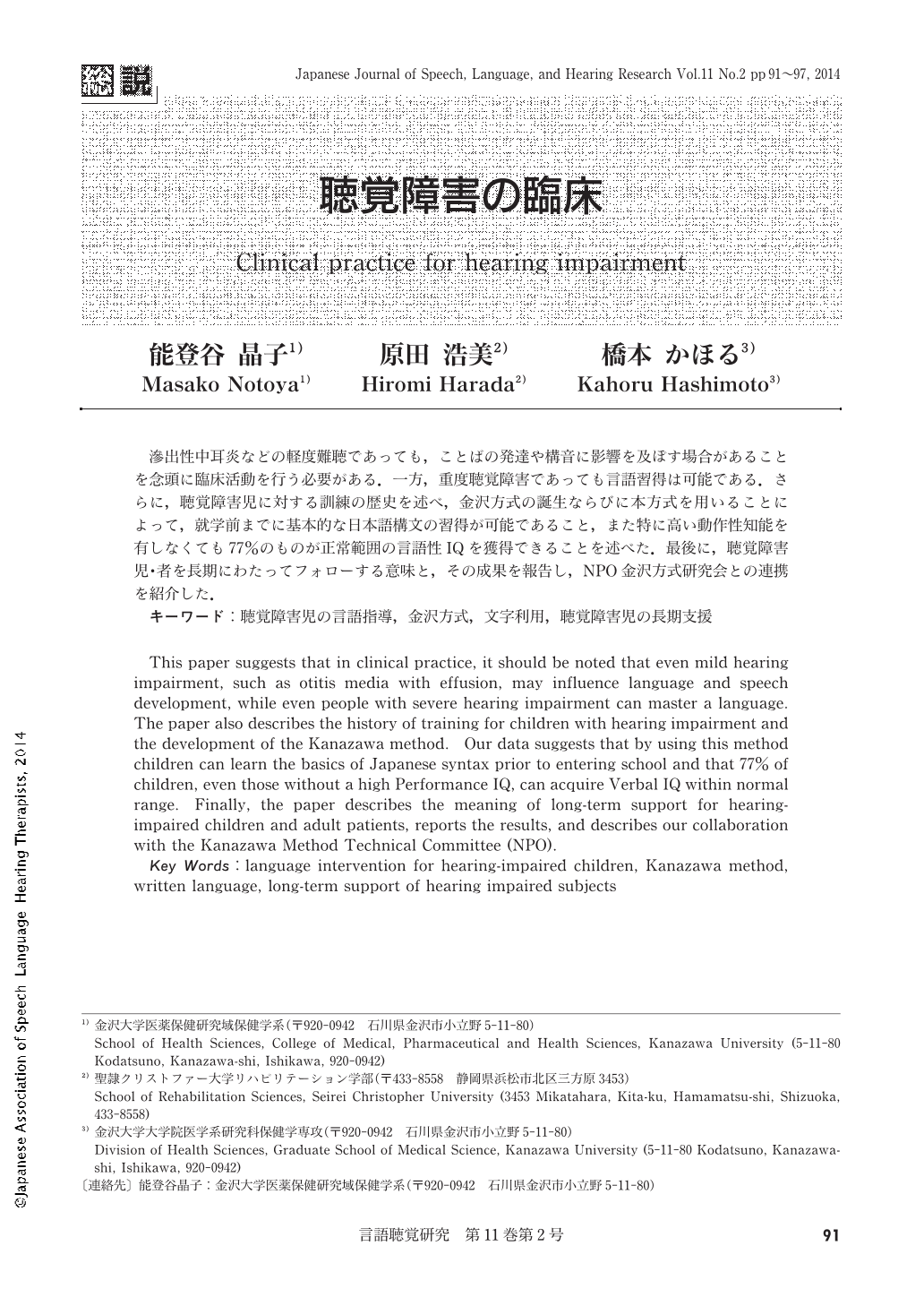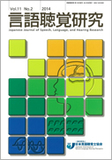Japanese
English
- 有料閲覧
- Abstract 文献概要
- 1ページ目 Look Inside
- 参考文献 Reference
滲出性中耳炎などの軽度難聴であっても,ことばの発達や構音に影響を及ぼす場合があることを念頭に臨床活動を行う必要がある.一方,重度聴覚障害であっても言語習得は可能である.さらに,聴覚障害児に対する訓練の歴史を述べ,金沢方式の誕生ならびに本方式を用いることによって,就学前までに基本的な日本語構文の習得が可能であること,また特に高い動作性知能を有しなくても77%のものが正常範囲の言語性IQを獲得できることを述べた.最後に,聴覚障害児・者を長期にわたってフォローする意味と,その成果を報告し,NPO金沢方式研究会との連携を紹介した.
This paper suggests that in clinical practice, it should be noted that even mild hearing impairment, such as otitis media with effusion, may influence language and speech development, while even people with severe hearing impairment can master a language. The paper also describes the history of training for children with hearing impairment and the development of the Kanazawa method. Our data suggests that by using this method children can learn the basics of Japanese syntax prior to entering school and that 77% of children, even those without a high Performance IQ, can acquire Verbal IQ within normal range. Finally, the paper describes the meaning of long-term support for hearing-impaired children and adult patients, reports the results, and describes our collaboration with the Kanazawa Method Technical Committee (NPO).

Copyright © 2014, Japanese Association of Speech-Language-Hearing Therapists. All rights reserved.


